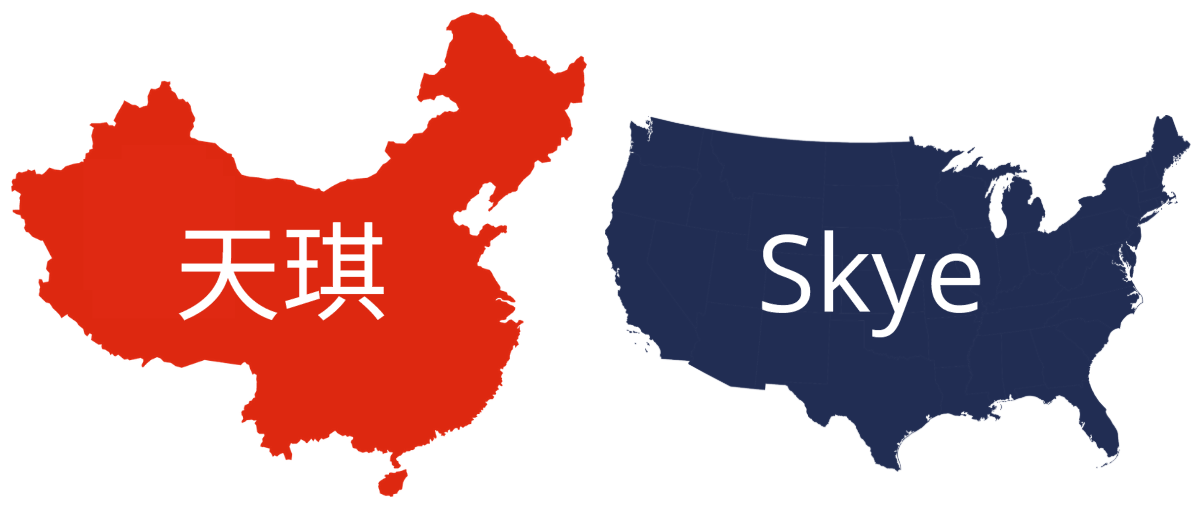“What’s in a name” is a quarter-long project by NBN Opinion in which individual writers explore the personal significance of a name.
“I sat beside a tall, makeshift tree. Every child was looking intently at the little paper cards hanging from the branches. The moment finally came, our teacher shook the trunk of the tree gently, and cards with names written on them flew off slowly like feathers.”
This is how my friend Shihe (诗鹤) got her English name in kindergarten.
Since English class became a requirement in most schools in China, it has become very common for Chinese students to be given an English nickname in addition to their Mandarin name at a young age. For most, these names’ value rarely extends beyond the English classes.
However, for many Chinese international students studying in U.S. colleges, their English names mean a lot more. Most of my friends choose to go by a preferred English name while studying in the U.S. to avoid the awkwardness of having their real Mandarin names mispronounced by non-Mandarin speakers.
For some of us, this is a compromise we have to make in order to be in the U.S.. Identity is tied to a name more than people ever start to consider. Every memory, laugh, smile, and tear is remembered and associated with a name. In college, international Chinese students are one of the very few populations that have to confront a shocking switch from one identity to another while transitioning from one culture to another. It’s terrifying. It makes a strange new environment more intimidating.
This is how I felt for a long while in my freshman year.
My name is Tian Qi (天琪), “Tian” as in the sky. “Qi” as in jade. Until the moment I was born, I was “Tian Gang” (天罡) because all the males of my generation in our family share the word “Gang” in their names. So when my family realized that I was a girl, my grandfather took out an old dictionary he carries around and immediately found a more feminine replacement.
My name means a lot to me. When I imagine a voice calling me “Li Tian Qi,” I think of my best friends back home: I think of us wearing hideous school uniforms and taking a walk down the track field; I think of the mean math teacher who always picked on me in middle school; I think of my mom calling me from downstairs to come out and eat dinner.
I missed being called by my “real” name a lot during my first year of college. I made my roommate and my best friends learn how to pronounce my Mandarin name and even my Shanghainese name. It was my attempt to feel a little closer to home. But slowly, it didn’t matter as much anymore.

As I explored this new environment and this new society, my perceptions and identity started to change bit by bit. Back home, I felt privileged. I lived in a nice urban home. I went to expensive private schools, and I was pale and Chinese like everyone else. But here, I am just one of the thousands of people making late-night ramen in a bowl that I stole from Sargent as I struggle through more studying.
Back home, I was put in uniforms and my hair was put up in an unchanging ponytail. Here, I am encouraged to stand out and be different. Back home, no one talked to me about mental health. Here, I am going to therapy and cohorts to talk about how I can take care of myself. Back home, I was taught that only slimness is sexy. Here, I gained the confidence that I never thought I had and signed up to perform in Burlesque.
My past is drastically different than my present, and I am reminded of that after every 14-hour flight to home and back. When I’m home, my friends and family call me “Tianqi” and it feels like nothing about me has changed: I still deal with the same problems and it is still difficult to face the things that used to hurt me. But when I’m back in college, I become “Skye” and it feels like a fresh start: I feel safer and have more space to talk about and work on my traumas. I also have more courage to do things that “Tianqi” might never do. Being “Skye” instead of “Tianqi” made me worry less about who I was in the past and focus more on who I can be. Instead of thinking that going by a different name prevents me from presenting my whole self to the world, I am grateful for my new name. I think it made me more daring in life.
My parents gave me my birth name, and I gave myself my English name. It is one of the first things I did in my life that was completely my own decision. My birth name brings me comfort. It reminds me that I will always share a bond with my family and my origin. My English name gives me power. It tells me that I can create my own paths and be whoever I wish to be.
Thumbnail Credit: Ryan Wagner